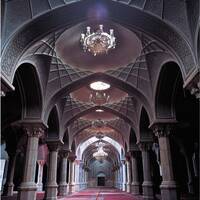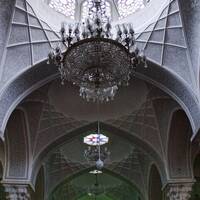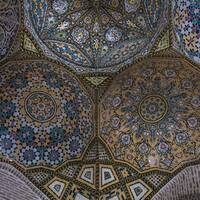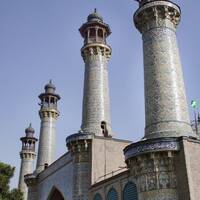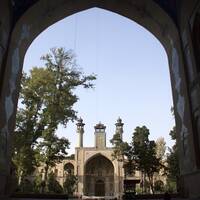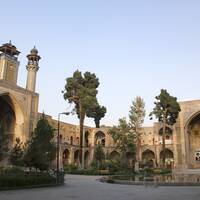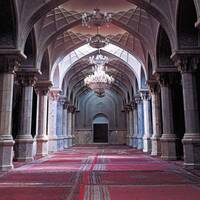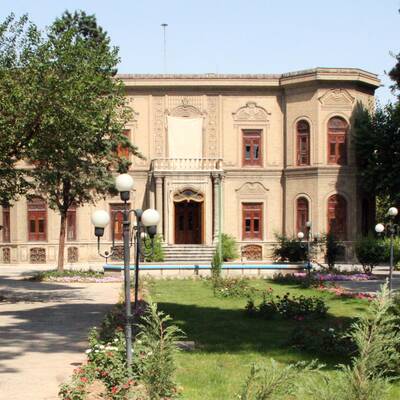Mirza Hossein Khan Sepahsalar, the prime minister of Naser al-Din Shah Qajar, ordered a large school and mosque to be built in the heart of Tehran. The work of constructing this building was continued after his death by his brother, Yahya Khan Moshir od-Duleh, and the project was ended after fifty years.
Sepahsalar Mosque-School was designed by Mirza Mahdi Khan Shaqaqi. Being also famous as Momtahen ud-Doleh, Mirza Mahdi Khan was the first Iranian engineer of architecture who went to France to study in this field.
Sepahsalar is a huge mosque constructed in the style of the old Iranian mosques, with gardens and a water pool in the courtyard, a beautiful dome over a wide courtyard and Iwans in four sides. We are speaking about Sepahsalar Mosque; a memorial of Qajar era and a place for teaching religious science in Baharestan square of Tehran.
The building of the mosque is highly glorious and it is considered to be the largest mosque-school of Iran. the design is inspired by Iranian samples like Chahar Bagh School and Isfahan Jama Mosque as well as Hagia Sophia in Istanbul. The existence of eight Goldastehs and the special style of dome constructing that is seen in Turkey mosques is the evidence of this claim.
Six doors were originally designed for the building of which three northern ones were ruined after the construction of the Parliament Library in 1342 SH. Today, we can see the west entrance of the building, that is open to the street with a glorious façade, while moving from National Council Parliament towards the south. The entrance is connected to the courtyard through a corridor. The east entrance of the complex is considered for women to enter. If one enters the complex from the south, a simple façade opened to a courtyard named Dar ol-Shafa is welcoming them. This section has recently turned into the place of answering religious questions.
Like many other Iranian mosques, Sepahsalar is also a four-iwan mosque. The central courtyard is square-form and each side has an Iwan. The main courtyard is 400 meter area built in two stories. This wide courtyard has totally sixty chambers for the students of religious sciences to stay.
One of the attractions of Sepahsalar Mosque-School is a watch with three bells that was made in 1880 in France and transferred to this complex. This watch has been installed over a room of five meters height with a tiled body. It is placed between two minarets located over the north Iwan of the mosque.
The library is also unique in its kind. It is also interesting to know that although a library was originally designed for the complex, it was not built until many years later. Finally, the library was added to the complex in 1313 SH when Maxime Siroux, the French architect, took the responsibility of its construction. It is the place of keeping 4000 manuscripts that had been bought by Sepahsalar. Currently, these books are kept in the library along with 10000 lithography books.
Being also famous as the Higher Mosque and School of Shahid Motahhari, Sepahsalar complex is among the unique monuments of Baharestan square. It saw all circumstances of Baharestan square, from the demonstrations and aggregations of Mosaddegh proponents to the parliament’s bombardment as well as the terror of Mirza Ali Asqar Atabak, Qajar prime minister.

